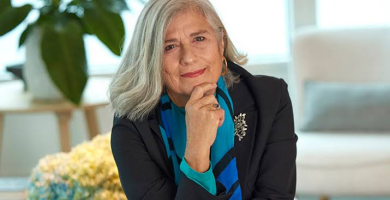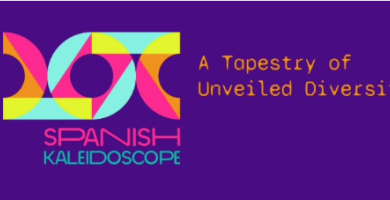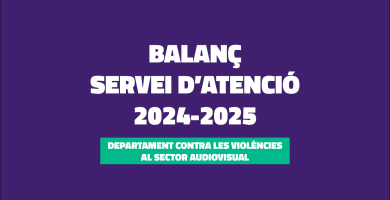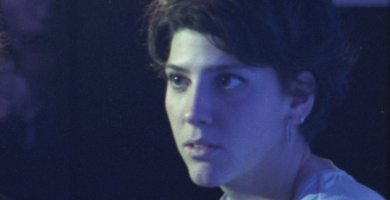
SARA GUTIÉRREZ: "More than four or five projects now corroborate that it doesn’t matter what you have done or your age; you can do interesting things".
We interview Sara Gutiérrez, Director of Yo la busco. This film has just been nominated for best film in the Gaudí Awards, confirming the success and the emerging talent of UPF students. We talk with her about the film which can be seen in Filmin and Movistar+ and about her experience directing her first film.

When did you first acquire a professional interest in films? When did you decide that you wanted to devote yourself to this?
I began my degree in audiovisual communication with the idea that it offers you a little of everything within the audiovisual world which is so broad. I remember that, as the years went by, I became more interested in film. I didn’t know exactly which aspect. When the idea of the Final Project was raised, I felt like putting myself to the test. I sense that I like writing, I like both consuming and conceiving films. Shall we see what it’s like to make them and to construct them? I started off precisely by asking myself whether it would be something that I want to devote myself to in the more or less near future. The entire process was very emotional, with pleasant and less pleasant parts. I think that now, having finished the film, I am starting to convince myself that I like it and that it is something that I want to devote myself to. This is a question which constantly appears, but I think that I am now beginning to sense that it is something that I would like to do as my job.
Yo la busco is a project which began as a Final Project at the UPF. Was it an idea which arose there or had you already thought of it?
The idea comes from the time when you say: we have to do a Final Project, we want to explain a story, to write it and we start a little from what we have. There was a group of five of us who were more in charge of the script. It starts from what we have to explain, which we have close to us and which moves us, that we have a minimum knowledge about and for which we have material. The answers to these questions were: we have a flat, which is pretty and which inspired us and represented us and in which I lived. And we have our own specific point of view about a type of relationship or relations. Also the night in Barcelona, which is something that is fairly within reach because, for example, you can shoot outdoors without a tripod with a small team or in interiors. We concocted all of this from what we had and what we wanted to explain. These two things went more or less hand-in-hand.
The film was shot in Barcelona. What do you think the city contributed to the film?
Barcelona contributed a lot throughout the process. In the beginning it started to contribute because it is an omnipresent scenario in everything that we explain. It is there when we explain a relationship between two people who coexist in a flat in a certain manner, which also depends on the current situation of what is happening in Barcelona. Almost more than half of the film depends on things which happen in interiors and exteriors of Barcelona at night. I remember many walks by myself or in a group, wandering around the city to see how we talked to each other. The whole of the second part of the film is Barcelona; it is the city. This came not so much from an attempt to write it but rather from seeing what there was and gradually selecting the locations and the people who were there and who, in a certain way, explained or portrayed moments or spaces which were special to us.
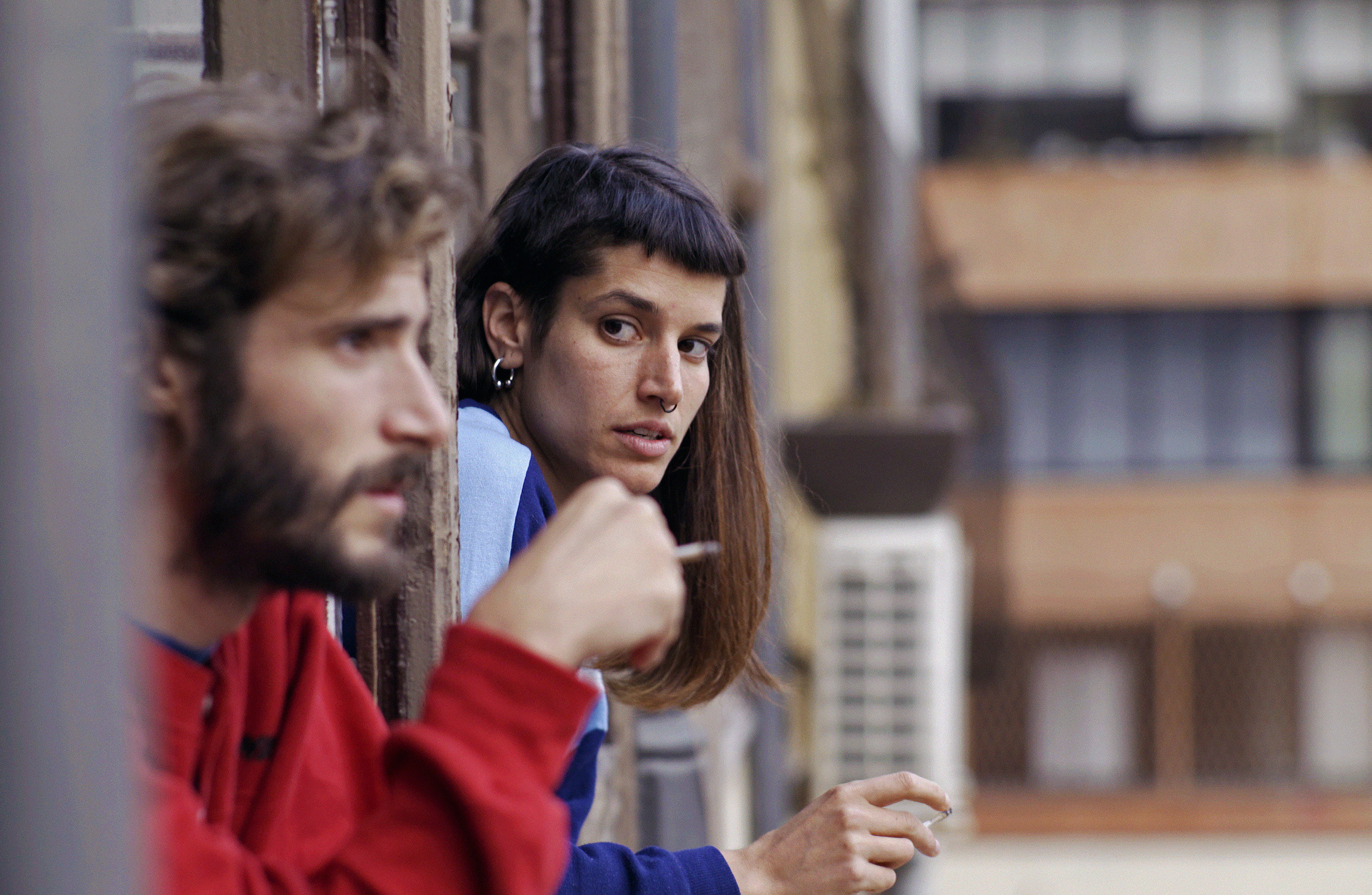
The films which emerge from the UPF are being quite successful. A few months ago, we interviewed Gonzalo de Lucas and he told us that having sufficient time to devote to the project was an important factor. Do you think that this was important for your project and what other factors do you believe have an influence?
Completely. If there was something which conditions these projects, at least in our case, it is time. Within the academic framework, everything is done a little by instalments, which is also similar afterwards in the professional world. In a certain way, these set dates and deliveries which have to be fulfilled in the academic process is what starts all this off. The film starts because we had a Final Project to do and we tried to do it in the manner which would make us learn the most. In the same way, after two months we had to have a script and after six we had to shoot. You shoot because you have to do it, because afterwards when you emerge more from the academic world, as is the case of Yo la busco which had a lot of life outside the university, the times depend a lot on you and on many other things. I think that everything would have changed a lot if I had started outside the UPF, maybe I wouldn’t have started or I would have done it in a few years. They are projects which are completed in a totally premature manner, but it is precisely that which makes them, in a certain way, unique. For my part I recognize that you are starting a project unconsciously, because I had never done it before and no one had told me about many things. But, otherwise, maybe I wouldn’t have done it. There are a lot of fears which maybe you don’t have because you don’t know what you will encounter. You start and you gradually see it. It is like being given a push.
Did it also help you a lot that your tutors were people from the film world who were working and in contact with reality?
Yes, of course. The difference is obvious and extraordinary. In the UPF, there are teachers and also professionals who shoot more or less regularly. Not just that, but also the fact that they are like the ones that we had: Mar Coll, Javier Rebollo and Jonás Trueba. Filmmakers who are close, who do things and who from inside can explain a little, in a more personal manner, what they have encountered and how to confront things in a practical way. They give you different viewpoints and practices, not so much from an academic perspective. They have the point of view of people who have taken a lot of blows and who have the resources to explain how to deal with things, how to work on the script in a more practical manner,…
How did Nanouk become interested in your film?
We met Nanouk in a pitching organized by the UPF. In the September after finishing and delivering the project, the UPF organized a pitching with producers from Barcelona; six directing projects were presented. We were one of these projects. Valérie Delpierre, Adrià Monés, Miriam Porté and Ventura Durall were there. It was a coincidence; I had been working for two years with Ventura. I began doing an internship and then I continued working with different projects. He didn’t know that I was doing a project and I didn’t know that he would be there. He was interested and from there we continued to work together.
The film has just been nominated for best film in the Gaudí Awards. It was presented in Malaga and participated in D’A. Were you surprised by the interest and the success received?
We were very surprised because we didn’t have any expectations beyond learning, enjoying and finishing it. It is a process which began with other motivations. Then, of course, when we knew that we were going to Malaga and to D’A there were many small surprises. They are interesting projects to experience because you are continuously running back and forth, since it is a university project and it is made by alumni and students and it is something to learn, but at the same time you’re in a professional industry and the demands and the ambitions make you feel a bit dizzy. We constantly had to situate ourselves and say - how does this film begin? What kind of film is it? Why are we doing this? - in order to clearly see what our limits, ambitions and expectations were. Obviously it surprised us, because we weren’t expecting it. But, at the same time, it is a project in which we trusted. In a certain way, if it went ahead it was because we were also explaining something which could be of interest and which people could relate to. We hadn’t asked ourselves how much but yes, obviously you believe in it; it’s not something just for you.
Did the critical acclaim of the previous films which emerged from the UPF, like Las amigas de Ágata and Júlia Ist, place additional pressure on you?
Of course, in my case and in that of Nuria Roura, who is the scriptwriter (we did the project together). This had a very positive effect on us. I think that we were beginning to engender what would end up being the film, sketching out our initial ideas and, at the same time, Las amigas de Ágata was in the cinemas. Basically, you believe that you can make a film. It has already been done, so therefore it is possible. When you don’t see things it is as if they did not exist. When you see that there are people from your same generation and without experience who manage to do it, you can relate to that and you say that maybe it can be done. Whether or not it is released in cinemas. You can make a film, although sometimes it is frightening to say it, which is interesting. Later on, when Júlia Ist joined it and had a life which was more or less just as successful, with the same visibility and public acceptance as Las amigas de Ágata, personally we made sure that this didn’t generate more pressure, but rather encouraged us. Sometimes it is difficult because we don’t know how to manage it. Júlia Ist, which was premiered at D’A with everyone from Barcelona, with the whole family. You think: wow, I want a screening at D’A as well because this is where I have everyone.
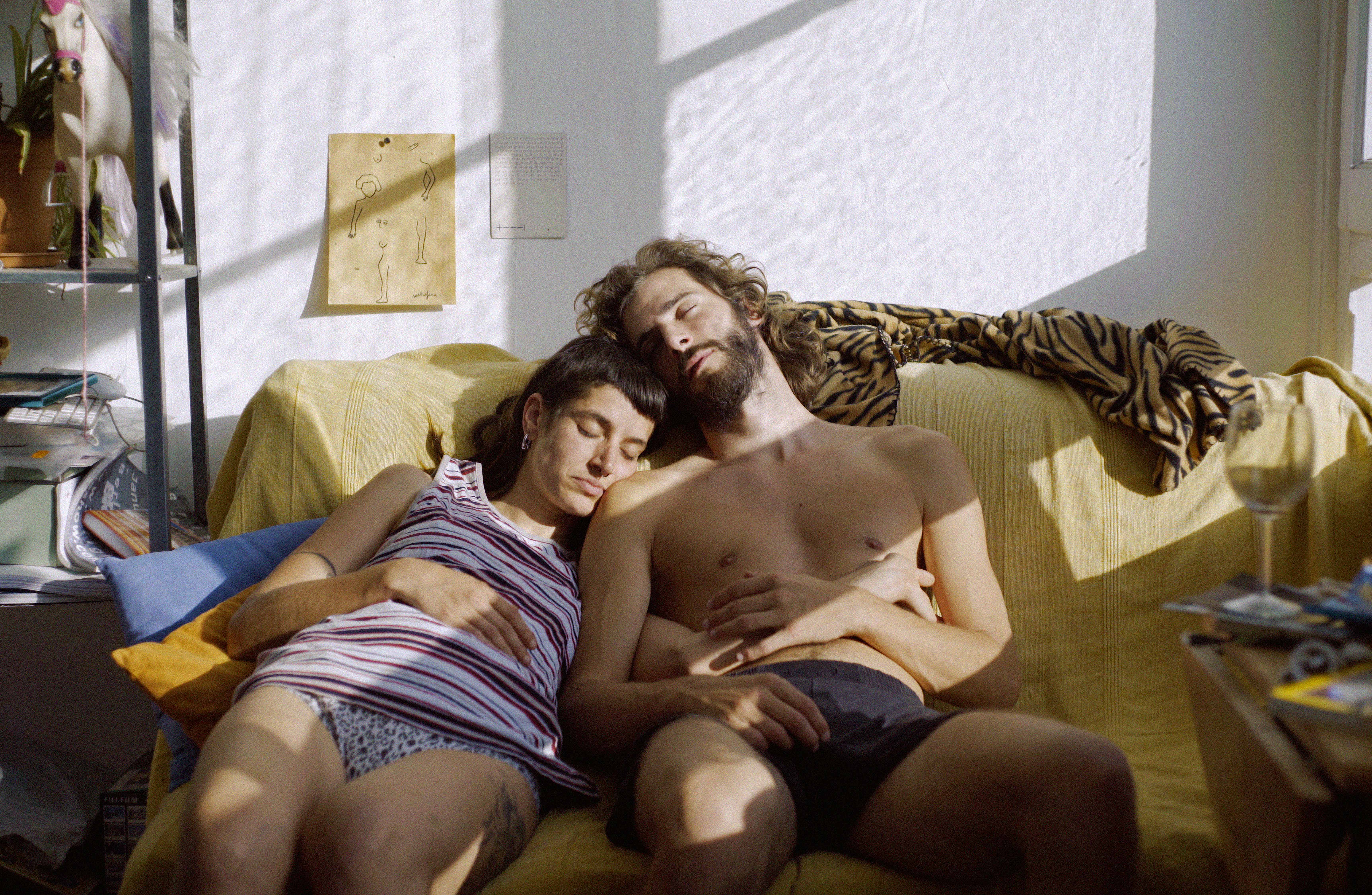
With the success of these films, do you believe that the industry is taking young talent more seriously?
If it isn’t doing so now, we have a problem. More than four or five projects now corroborate that it doesn’t matter what you have done or your age; you can do interesting things. If this is of use for anyone to go knocking on doors to be heard, it will be fantastic, because that is what should happen. Beyond all this, whatever you have done and whoever you are, it is always difficult to start up new projects.
What difficulties did you encounter as a new director?
The fact that I was doing a lot of things for the first time and didn’t have the tools and the experience to know how things work. This can be a problem because, in a certain way, you can’t anticipate what will happen. They are long processes and things don’t stop happening and, now that I’ve done it once, there will be many things that I will know what may happen and I will be more prepared. I took it all as a great learning experience and as something extremely exciting rather than a problem. I didn’t try to place myself on the same level as people who have a lot of experience but rather I tried to take the tools that I have and my project, which we loved and in which we really believed. From there, with humility, knowing that you are encountering situations or meeting people who have much more experience than you. You must know how to position yourself. You know more things than me, but I know this project better. You have to hold on to what you have. Apart from that, were their difficulties? In different aspects, knowing how to manage, bearing in mind that it is a project with limited resources and at the same time sufficient to make the film that we wanted to make. Knowing where to invest and put the resources that you have, above all in the shoot. Where to put them and where not. Where we can be more humble and where it is worth giving more. In this aspect, it was Nanouk and Ventura Durall who made the decisions, because that was precisely the part where we didn’t have experience and they did. Where we or I couldn’t arrive, we had Nanouk.
A lot is said about female directors, because it seems to have become fashionable. We hope it doesn’t go out of fashion. What do you think young people can do to give women more visibility in the sphere of audiovisual?
Some years ago this didn’t happen and now it does. You are finishing your studies and you see women of different ages who are directing films, who are directors of photography, producing. I think that this, the fact that it exists, is what proves it, not that they explain it to you. If you see that Carla Simón made the film that she made and that what is happening is happening, you don’t need anybody to explain anything to you; it is obvious. In our case, with Las amigas de Ágata or Júlia Ist, you see it, it exists and they are not explaining the theory to you. Beyond this, there are many aspects to take into account: to see how many projects are being carried out. Are they reaching the cinemas? How are they received? What financing did they receive? Was it fair? There are many questions which are raised. How can you give more visibility? The answer is in the educational sector. At the time when you are training, that things are happening, that there are women who are directing, that they receive support from institutions, production companies, etc.... And, at the same time, it is very important that this is taught and explained in the film schools, that there is a rereading of history and much more focus is placed on speaking about female directors or filmmakers about whom nobody explained anything to us. If they don’t explain it to you, it doesn’t exist. It seems that the history of film has been made by men. And that is not the case. In the film school they never talked to us about Alice Guy or Maya Deren. I remember that we discovered it with a friend on a project. We wanted to discover whether there were female directors who had done something, we were sure that there must be some who had decided to get behind a camera. This has happened with the whole history of humanity. But, this work should be carried out a great deal in education, reconsidering everything.
What is Sara Gutiérrez doing now? Do you have another film in mind?
I think that one of the things that I have learnt, and there are many, is that I want to make another film. Beyond all the people that I have met, which is maybe the most important aspect. But one question with which all this started was: when all this ends will you want to make a film? Will you really like it? And the answer is yes. In many aspects, I can now see how to make a new film. On truly rereading and processing everything that is happening and seeing how I would like to do it. I have already talked a little about this with Nuria, with this really sweet and really exciting closure and ending of Yo la busco: to see how we would like to begin to shoot and to write. Where? With whom? Just that.





